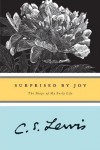The Voyage of the Dawn Treader by C.S. Lewis
"There was a boy called Eustace Clarence Scrubb and he almost deserved it."
Another year has passed. Peter and Susan Pevensie are able to travel with their parents to America, while Edmund and Lucy are sent to live with their cousin, Eustace Scrubb. Eustace is a spoiled pest, a child who has been raised by "very up-to-date and advanced" parents and who attends a "modern school." When the three children pass through a picture of a sailing ship and back into the land of Narnia, they are tossed into another wild adventure.
The Dawn Treader is the pride of the Narnian fleet and is carrying Prince Caspian on a journey to find the seven lost lords of Narnia, friends of his father who sailed east and went missing long ago. As they explore both uncharted land and water, the children find themselves in situations of danger and moments of decision that will change their lives forever.
This book is the third book published of the Narnia chronicles and with each book, Lewis weaves more gems of wisdom into the story and does so with a genuineness that is particularly appealing. Lucy once again has an encounter with Aslan: Lucy is instructed to look for a particular spell in a book of Magic but decides, against her conscience, to read a spell that will stroke her vanity and make her more beautiful than her sister. Immediately she spies Aslan on the page, growling and showing his teeth, which stops her selfish action. Instead she chooses to read a spell that allows her to eavesdrop on two girls from her school, and what she hears about herself is not pleasant, especially since she had viewed one of the girls as her friend. Aslan gently admonishes her about listening to their conversation and says that her relationship with her friend will now never be the same. When Lucy wishes to know what would have happened if she hadn't eavesdropped, Aslan tells her, as he told her in Prince Caspian, "Child, did I not explain to you once before that no one is ever told what would have happened?" Actions have consequences and we need to weigh the repercussions before we act, instead of being guided by impulse.
|
Wikimedia Commons |
Eustace Scrubb is certainly a wonderful character and Lewis' development of him is extraordinary. Going from a petulant, spoiled, impertient child, he is transformed by a frightening experience, yet Lewis does not make him perfect in his transformation. As we see by his reactions, he still holds some of the same prejudices, assumptions, and, at times, behaviour as he originally did. Eustace's encounter with Aslan fundementally changed his soul, yet he is like an Everyman, struggling with life's circumstances while trying to live a life of integrity, and still making mistakes along the way.
Lewis makes a point in this book of examining the views of an exclusively scientific mentality and what results from this kind of worldview. Eustace is initially presented as boy who goes to a model, or progressive school, and is only exposed to factual experience. Because of his sterile formation, he is unable to enjoy or even recognize, the magic and joy in Narnia. He has straightforward knowledge, but when situations do not fit into his technical understanding, he is handicapped by his lack of wonder and curiosity, and is unable to accept, understand or cope with them. What is particularly telling, is that he doesn't recognize what lies right in front of his face: in spite of being on the Dawn Treader and being able to see that it is a ship, he tries to tell Caspian what a real ship is like; when they land on Droon, it is reasonably obvious (and he has been told) that they are in another world, yet Eustace insists they should find the British consul; and even after Eustace's transformation, when they land in the country of the Dufflepuds, he makes an impulsive judgement about the area and its people based on his first sight of technology: "Machinery! I do believe we've come to a civilized country at last!" By living solely by "the facts", Eustace can recognize what makes us physically human, yet misses the wonder, enjoyment, and recognition, of what makes us spiritually human.
|
Detail of Dawn Treader port stern porthole photo courtesy of David Jackmanson |
Living during the Second World War and being exposed to the Nazi's views of racial superiority and social-Darwinism, Lewis' was unavoidably confronted with certain aspects of science and was forced to ponder their eventual outcomes:
"Again, the oligarchy must more and more base its claim to plan us on its claim of knowledge ……. This means they must increasingly rely on the advice of scientists …… Now I dread specialists in power because they are specialists speaking outside their special subjects. Let scientists tell us about science. But government involves questions about the good of man, and justice, and what things are worth having at what price; and on these a scientific training gives a man's opinion no added value …… On just the same ground I dread government in the name of science. That is how tyrannies come in. In every age the men who want us under their thumb, if they have any sense, will put forward the particular pretension, which the hopes and fears of that age render most potent. They 'cash in'. It has been magic, it has been Christianity. Now it will certainly be science."
Lewis was not concerned about science itself, but the importance placed on it and for what means it could be used.
Once again, Lewis weaves a wonderful adventure for children, but leaves questions and ideas that relate to an adult world.



 1
1









